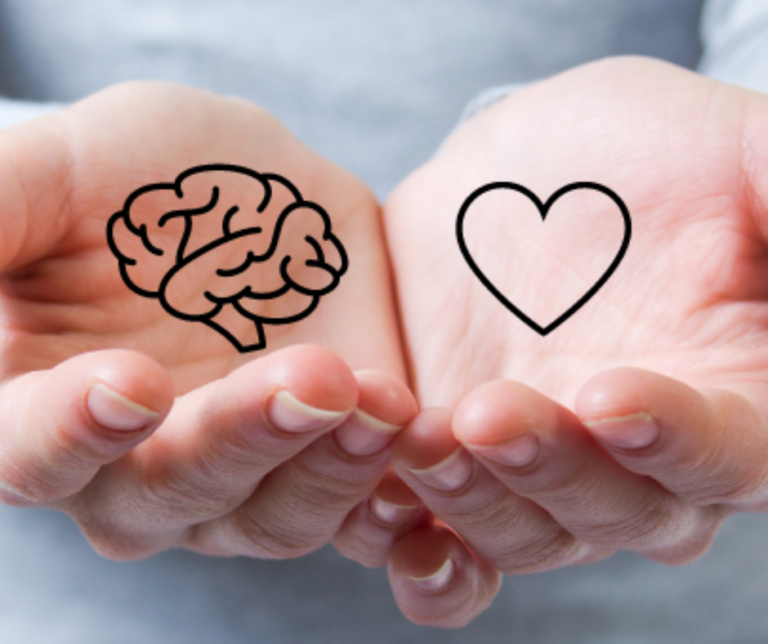The Benefits of Journaling for Mental Clarity: Clear Your Mind, Boost Your Focus
Meta Description: Discover how journaling can improve mental clarity, reduce stress, and boost productivity. Learn powerful journaling techniques to declutter your mind and enhance emotional well-being.
Introduction
In a fast-paced world filled with distractions, endless to-do lists, and constant digital noise, mental clarity often feels out of reach. Many of us struggle with racing thoughts, mental fatigue, anxiety, or lack of focus. But what if there were a simple, cost-effective, and powerful tool to clear your mind and sharpen your thinking?
Enter journaling—a timeless practice that’s making a strong comeback in the wellness world. Far beyond teenage diary entries, journaling is now recognized by psychologists, productivity experts, and mindfulness coaches as a key practice for mental clarity and emotional wellness.
This article will dive deep into the science-backed benefits of journaling, how it helps you clear mental clutter, and practical techniques to help you get started—even if you’ve never journaled before.
What is Journaling?
At its core, journaling is the act of writing down your thoughts, feelings, goals, or experiences. It can be structured (like gratitude or bullet journaling) or free-flowing (stream-of-consciousness writing). The key is consistency and honesty.
Journaling helps you get your internal dialogue out onto paper, giving you space to observe, reflect, and recalibrate.
The Mental Clarity Problem
Many people today experience:
- Overthinking and racing thoughts
- Decision fatigue
- Mental fog and poor focus
- Stress and anxiety
- Difficulty processing emotions
When your brain is overwhelmed, it’s hard to think clearly, stay focused, or feel at peace. That’s where journaling comes in—it declutters your mind and creates space for clarity.
Top Benefits of Journaling for Mental Clarity
1. Declutters the Mind
Writing down your thoughts is like emptying your mental inbox. Journaling allows you to release thoughts, worries, and ideas that are swimming in your head—freeing up space for focus and decision-making.
Tip: Use “brain dump journaling” at the start or end of your day to release everything that’s on your mind.
2. Improves Focus and Productivity
When your mind is clear, you’re more able to prioritize, make decisions, and stay focused. Journaling helps you organize thoughts, identify what matters, and avoid mental distractions.
Journaling before work can help you set intentions and eliminate mental noise.
3. Reduces Anxiety and Stress
Writing about your worries can reduce their emotional grip. According to a study in the Journal of Experimental Psychology, expressive writing can lower anxiety and improve cognitive performance.
When you name your feelings, you tame them. Journaling creates emotional distance and regulates stress responses.
4. Enhances Self-Awareness
Journaling encourages you to explore your thought patterns, habits, and emotional triggers. Over time, you develop a better understanding of yourself—which leads to better decisions and personal growth.
“Until you make the unconscious conscious, it will direct your life and you will call it fate.” – Carl Jung
5. Boosts Mental Clarity During Life Transitions
Whether you’re changing careers, going through a breakup, or navigating a big decision, journaling can help you process change, gain perspective, and choose your next steps with intention.
Journaling allows you to reflect on past experiences and visualize future goals.
6. Improves Memory and Cognitive Processing
Writing helps solidify experiences and lessons into your long-term memory. It also engages both the analytical and creative parts of the brain, which boosts mental agility and retention.
7. Encourages Mindfulness and Presence
Journaling is a mindful practice. When you slow down and put pen to paper, you connect with your present thoughts and emotions, anchoring you in the now.
Unlike scrolling or passive consumption, journaling is active, personal, and calming.
8. Supports Emotional Healing
Research has shown that journaling about trauma or difficult experiences can help with emotional processing and reduce symptoms of depression and PTSD. It allows for catharsis and helps you reframe painful narratives.
9. Sparks Creativity and Problem-Solving
Freewriting helps you access subconscious thoughts and generate new ideas. Many writers, entrepreneurs, and creatives use journaling to break through blocks and come up with fresh solutions.
10. Improves Sleep Quality
Nighttime journaling, especially gratitude or reflection journaling, has been linked to better sleep. It clears your mind, reduces nighttime overthinking, and creates a sense of peace before bed.
Scientific Studies on Journaling & Mental Health
- A study by Dr. James Pennebaker, a psychologist at the University of Texas, found that writing about emotional experiences significantly improved immune function and mental health.
- Research published in Advances in Psychiatric Treatment shows that journaling can lead to reduced rumination and depressive symptoms.
- The University of Rochester Medical Center notes that journaling helps manage anxiety, reduce stress, and cope with depression.
Different Types of Journaling for Mental Clarity
Here are several effective journaling styles you can try:
1. Stream-of-Consciousness Journaling
Also called “morning pages,” this is where you write whatever comes to mind without censoring or editing. It’s great for emotional release and creativity.
2. Gratitude Journaling
List things you’re grateful for each day. It boosts mood, rewires your brain for positivity, and shifts focus away from negativity.
3. Prompt-Based Journaling
Use specific questions like:
- What’s causing me stress right now?
- What do I need to let go of?
- What’s one thing I can do today to feel better?
4. Goal and Intention Journaling
Use journaling to plan your day, week, or year. Clarify your vision, track progress, and stay aligned with your values.
5. Bullet Journaling
Combine planning with reflection. Track habits, moods, tasks, and insights in a concise, visual format.
How to Start a Journaling Practice
Step 1: Choose Your Tools
You can use:
- A physical notebook
- A digital app (like Day One, Notion, or Google Docs)
- Voice notes if you prefer speaking
Step 2: Pick a Time of Day
Morning journaling boosts productivity and clarity. Evening journaling helps with reflection and emotional release. Choose what works best for you.
Step 3: Set a Timer (5–10 minutes)
Short sessions reduce resistance. You don’t need to write for hours—just get your thoughts out.
Step 4: Don’t Edit Yourself
Your journal is a judgment-free zone. Spelling, grammar, or “making sense” doesn’t matter. Authenticity is the goal.
Step 5: Be Consistent
Even 3 days a week can make a huge difference. Make journaling a part of your self-care routine.
Common Myths About Journaling
- “I’m not a good writer.”
Journaling isn’t about perfection—it’s about expression. - “I don’t have time.”
Even 5 minutes of journaling can boost clarity and mood. - “I never know what to write.”
Use prompts or just start with “Today I feel…”
Journal Prompts to Get You Started
- What’s one thing that’s weighing on my mind?
- What do I want to focus on today?
- How am I feeling right now—and why?
- What am I grateful for today?
- What do I need more of in my life?
- What can I let go of right now?
Conclusion: Your Mind Deserves Space to Breathe
Journaling is more than a writing habit—it’s a mental reset button, a safe space to express your inner world, and a tool for long-term clarity and well-being.
Whether you’re seeking peace, focus, emotional release, or creative inspiration, journaling can help you get there—one page at a time.
Start today. Your thoughts deserve to be heard, even if it’s just by you.
Want a free printable journaling template or 30-day journal challenge for your readers? Let me know—I can create one!
Would you like me to write the next article on:
- “Daily Habits That Improve Mental Health”
- “Journaling for Self-Discovery and Growth”
- “Gratitude Journaling: How to Rewire Your Brain for Positivity”





